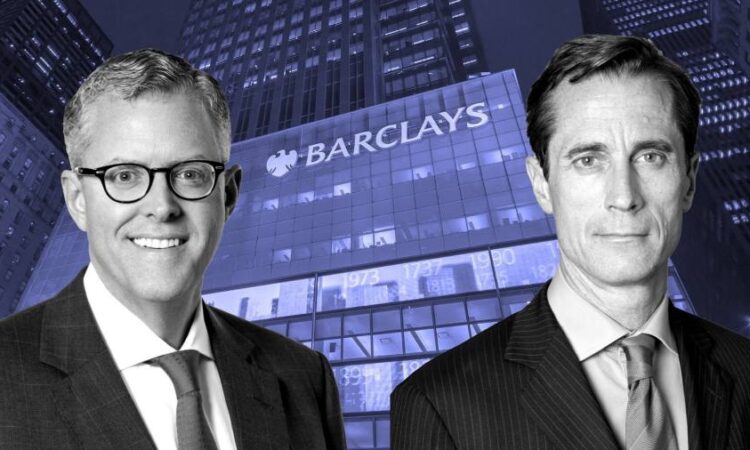
Barclays is fighting to stem an exodus from its investment bank after around 30 of its bankers in the US quit to join rivals this year, departures which risk damaging the British lender’s ambitions to compete with larger Wall Street firms.
Barclays’ human resources department has been warning bankers who leave the company not to try to poach their colleagues, according to people familiar with the matter.
So far, Barclays has struggled to stop a steady flow of departures with more than half a dozen more managing directors leaving in recent weeks, including Michael Gingue and Sam Jackson, who are moving to Jefferies, and Derek Keller, who is joining UBS, the people said.
They add to a number of other exits this year. Global investment banking chair John Miller is one of more than a dozen Barclays bankers who has joined Jefferies, while top dealmaker Marco Valla went to UBS to become the Swiss lender’s global co-head of investment banking. Valla was previously global head of technology, media and telecom, and consumer investment banking at Barclays.
“I’ve never seen an exodus as large as this,” said one banker who recently left Barclays.
Inside Barclays, bankers blame the recent upheaval on the decision at the start of the year to replace Miller and Jean-Francois Astier as co-heads of the investment bank.
Barclays appointed Taylor Wright, most recently co-head of global capital markets, and Cathal Deasy, who joined from Credit Suisse, to co-run the business. Miller stepped back to a chair role before leaving for Jefferies, while Astier was named global head of the financial sponsor business.
Senior insiders say the appointments were a strategic decision to usher in a new generation in the leadership team with a different focus than the bank has had in the past.
Historically, Barclays’ investment bank, which in the US was built around the 2008 acquisition of Lehman Brothers’ North American business, has been weighted more towards debt capital markets.
The bank wants to expand more into equities and advisory work, particularly given the rise in interest rates, the growing strength of boutique investment banks and private credit funds, and the opportunities in emerging sectors such as tech and renewable energy.
“When you make this change, it’s not just about just hiring specialists, it’s also about the leadership being attuned to what this world is going to look like,” said one senior Barclays executive.
And while Miller and Astier were both based in New York, Barclays has gone back to having one of its two co-heads — Deasy — based in Europe.
“Just having a co-head of banking that works in that milieu, connected to that client base more naturally is helpful,” the senior Barclays executive said.
But in the early months, the changes have caused tumult among bankers who did not get senior jobs or were loyal to the previous leadership.
In response, Barclays has hired around 20 bankers at the director and managing director level so far this year in its investment bank, including software banker Douglas Melsheimer from Goldman Sachs and equity markets banker Foruhar Madjlessi from Instone Real Estate Group.
Jefferies and UBS declined to comment.
In a statement, Barclays said it has a growth strategy to break into the top five largest investment banks and “a key component is attracting and retaining top talent with the right leadership to take our business into the future”.
“In investment banking we announced a new leadership team in the first quarter and we expect and plan for natural attrition when changes occur. We are confident in our strategy, will continue to invest in talent, and we are committed to supporting and helping clients navigate today’s economic environment,” the bank said.
In 2022, Barclays was ranked as the sixth highest-earning investment bank globally, leapfrogging a deeply wounded Credit Suisse but trailing the five largest US investment banks, according to data compiled by Refinitiv.
Convincing investors of the merits of Barclays’ investment banking business is central to chief executive CS Venkatakrishnan’s efforts to boost the bank’s share price.
The departures are notable at a time when hiring across Wall Street has slowed amid a dearth of dealmaking, which has led some banks including Goldman and Morgan Stanley to cut jobs.
For one senior investment banker at a competitor, the exodus was a reminder “how fragile investment banks are”.





